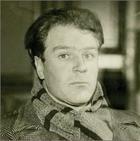
Of a Mallorcan father and a former worker, a trade unionist and a self-taught worker -because he left school at the age of twelve to become an errand boy-, Marc Bernard (Nimes, 1900-1983), satiated his "thirst" for culture by writing stories and short stories that he sent from anonymous form to the newspaper L'Humanité. In 1928, his first novel, Zig-zag, is accepted by the Nouvelle Revue Française and Bernard becomes a part, thanks to Henri Barbusse, of the writing of the prestigious magazine Monde as secretary and literary critic. From that moment he turned to journalism, both in the written press and on the radio (he presented a literary program on national radio for a while, and played on Radio Madrid during the Civil War), as well as in writing. Publish Au secours! in 1931, and in 1934 Anny, work that will be worth the Interallié Prize. After his demobilization, he writes Pareils à des enfants, a novel of autobiographical dyes for which he won the Goncourt Prize in 1942. Back in Paris after the liberation he will not stop writing, and will publish, among others, Vacances in 1953, Salut, camarades in 1955 and Sarcellopolis, his research on the inhabitants and ways of life in a new urbanization, in that same year. In 1970 he was awarded for the whole of his work with the Grand Prix Poncetton of the Société des Gens de Lettres. The death of his wife, Else, inspired him three fundamental books: The death of the beloved, Au-delà de l'absence and Tout est bien ainsi.




